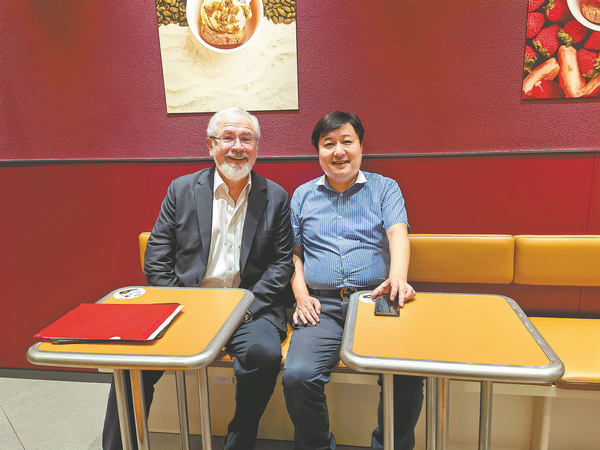Doctor's blood oath to cure illness


Some Western experts are not solely convinced by data from study results, Hu says. A researcher needs to have sound thinking and reasoning as well as medical ethics, which include proper consideration for patients throughout the research process.
Blaise, also a senior member of the European Cooperative Group for Bone Marrow Transplantation, says Hu's team is exceptional and their dedication to refining treatments is noteworthy. Hu distinguishes himself through his ability to lead medical innovation and swiftly translate it into tangible benefits for patients, he says.
"His unwavering dedication to improving patient outcomes is palpable, driving his relentless pursuit of collaborations with diverse teams both domestically and internationally," says Blaise, who is also former chairman of the French Society of Bone Marrow Transplantation and Cell Therapy.
"This collaborative spirit extends beyond cooperation, as he adeptly orchestrates these partnerships for the collective advancement of all teams and, most importantly, the well-being of the patients they serve."
More innovation
More recently, Hu's team has been working on the optimization of transplants by using dual alkylating drugs as a front-line treatment for patients with AML. Alkylating agents are a family of anticancer drugs that interfere with a cell's DNA and inhibit cancer cell growth.
Hu was selected to give an oral presentation during the EBMT 2023 Annual Meeting in Paris in April, following the good outcomes of the alkylating drugs treatment.
"Regarding the recurrence rate, we're definitely becoming a leader. The recurrence rate for average cases is around 15 percent, and we have brought it down to 5 to 6 percent," he says, adding that it is uncommon for any transplantation center in the world to achieve single-digit results.
Around 150 patients treated at Ruijin, and another 200 patients treated in dozens of medical centers nationwide have benefited from the innovative transplantation methods of Hu's team. Among them are young patients, including minors and people in the prime of their life.
Although many medical innovators have strong personalities and fixed ideas, Hu says, "I'm open to communication and to welcoming ideas from both home and abroad. For me, that's how innovations are produced".
He is willing to send his students elsewhere and welcome outsiders to his team. Only one member of his current team of five is a former student of his.
"In my mind, it's good for them to grow and thrive when they have opportunities to work with different experts before they develop a fixed idea about their work. Work experience with different minds, and of different work methods, will stimulate them to think of new questions and see things from a variety of perspectives," he says.
Contact the writer at [email protected]




































